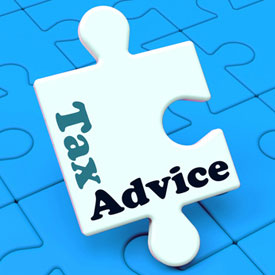Record haul by HMRC in tax avoidance crackdown
 Back in January we reported that HMRC had raised an extra £20.7 billion in additional revenue for the financial year 2012-13 as a result of it’s drive on tax compliance and a massive crackdown on tax avoidance by organisations and individuals alike. Now we can confirm that the financial year 2013-14 figures are in and HMRC has increased their haul to £23.9 billion in additional tax for the year – an all time record and one which represents 5% of the total tax yield for the year. This is an increase of £3.9 billion on the year before and it’s up a whopping £9 billion compared to 3 years ago. George Osborne will be doubly pleased because this year’s figure also beats the target he set in his Autumn Statement by £1 billion clear.
Back in January we reported that HMRC had raised an extra £20.7 billion in additional revenue for the financial year 2012-13 as a result of it’s drive on tax compliance and a massive crackdown on tax avoidance by organisations and individuals alike. Now we can confirm that the financial year 2013-14 figures are in and HMRC has increased their haul to £23.9 billion in additional tax for the year – an all time record and one which represents 5% of the total tax yield for the year. This is an increase of £3.9 billion on the year before and it’s up a whopping £9 billion compared to 3 years ago. George Osborne will be doubly pleased because this year’s figure also beats the target he set in his Autumn Statement by £1 billion clear.
Of the £23.9 billion raised in these latest figures, £8 billion is derived from large businesses, £1 billion from criminals and a further £2.7 billion is the result of successfully tackling tax avoidance schemes in the courts. That leaves £12.2 billion which we Read more

 Her Majesty’s Revenue & Customs (‘HMRC’) have now completed a 7 month pilot scheme, held across the North East of England, whereby they closed existing HMRC Enquiry Centres and instead offered those requiring extra help with tax-related issues assistance in a different, more tailored way. With the pilot scheme now complete and deemed a success, all Enquiry Centres across the UK will be closed by 30 June 2014 (just a few days away at time of writing) in favour of the new, more tailored system.
Her Majesty’s Revenue & Customs (‘HMRC’) have now completed a 7 month pilot scheme, held across the North East of England, whereby they closed existing HMRC Enquiry Centres and instead offered those requiring extra help with tax-related issues assistance in a different, more tailored way. With the pilot scheme now complete and deemed a success, all Enquiry Centres across the UK will be closed by 30 June 2014 (just a few days away at time of writing) in favour of the new, more tailored system. Have you ever wondered how much of one’s total income is taken up in tax? And I don’t mean just Income Tax. I mean in ALL taxes paid by ordinary taxpayers throughout the course of a year. Such a figure would need to take into account National Insurance (income tax in all but name, some might say), the insidious Value Added Tax or ‘VAT’ – which on its own is a hefty 20% tax on what is often already taxed money for most ordinary taxpayers, and don’t forget to include Council Tax and finally, of course, Income Tax itself.
Have you ever wondered how much of one’s total income is taken up in tax? And I don’t mean just Income Tax. I mean in ALL taxes paid by ordinary taxpayers throughout the course of a year. Such a figure would need to take into account National Insurance (income tax in all but name, some might say), the insidious Value Added Tax or ‘VAT’ – which on its own is a hefty 20% tax on what is often already taxed money for most ordinary taxpayers, and don’t forget to include Council Tax and finally, of course, Income Tax itself. Many ordinary working taxpayers do not even know it exists, but The Taxpayers Charter is there to make sure that HMRC give you a service that is even-handed, accurate and based on mutual trust and respect. HMRC also want to make it as easy as possible for you to get things right.
Many ordinary working taxpayers do not even know it exists, but The Taxpayers Charter is there to make sure that HMRC give you a service that is even-handed, accurate and based on mutual trust and respect. HMRC also want to make it as easy as possible for you to get things right.